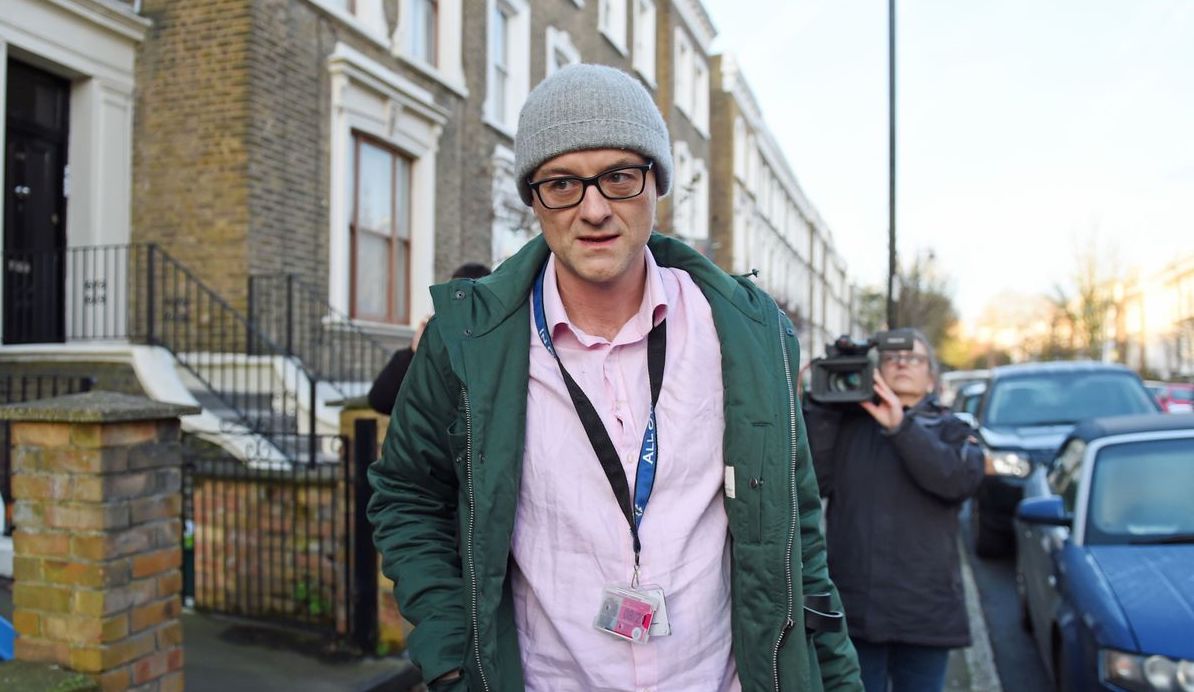Dominic Cummings is not your typical advisor. His strong character and radical solutions are turning society upside down. Isabel Ralphs examines the profile of one of the most influential men in the UK.
For all that is thrown at MPs for the failings of Parliament, it is actually an unelected individual that is currently calling a lot of the shots in Downing Street.
Dominic Cummings is something of a love-him or hate-him figure, and has been dividing opinions with his brash approach to Government since he first came on the scene as Special Adviser to Michael Gove from 2007 to 2014.
Following his successful overseeing of the Leave Campaign in 2016, Cummings was promoted to the position of Special Adviser to the Prime Minister by current PM Boris Johnson and, even in the few short months since his appointment, he has caused quite the stir to Number 10.
In January, Cummings’ blog – an assorted array of rants and musings on education, politics and scientific discoveries – went viral after he posted a job ad calling for “data scientists, project managers, policy experts and… assorted weirdos” to apply for the Civil Service. Despite being an Oxford graduate himself, Cummings wants to see an end to what he judges to be a domination of our bureaucracy by an out-of-touch and assimilated elite.
Cummings’ scepticism also extends to the elected officials he oversees in Westminster as well. As Chief Aide, he is behind the decisions to hire and fire staff and contributes to setting the general tone of the Government – which he currently appears to be ruling with an iron fist.
He made tabloid headlines last week after he – apparently “jokingly” – told a journalist that cartoon characters could outperform the current Cabinet. With Cummings urging him on, the PM culled a number of sitting Ministers in last week’s dramatic Cabinet reshuffling. This included a reduction in the number of women in the Cabinet, from eight to seven.
Cummings’ no-nonsense approach to hiring and firing is reflective of the increase in power that seems to be held by those at the very top ends of the UK political system these days. Number 10 is currently waging a war on a number of media outlets, including the BBC who Cummings had previously branded as a “mortal enemy” of the Conservative Party.
It has been reported that Boris Johnson and his closest aides are boycotting the flagship BBC Radio 4 Today program, complying only with the “cushier” interview style of more relaxed shows, like BBC Breakfast.
It seems that the Government is able to pick and choose to be interviewed when it is convenient for them, a practise that can hardly be said to constitute genuine scrutiny. With threats of abolishing the license fee that keeps the BBC afloat increasing in ferocity by the day, the power that our current Government has over media outlets shows no sign of relent.
Cummings perceives political discourse, the Civil Service, Trade Unions, the media and other professional associations generally as a barrier to innovation and “getting stuff done”.
If his blog posts are anything to go by, he seems to think that the world is made up of a very small number of intelligent people and a mass of mediocrity – and that the former certainly cannot be found in our Civil Service, media or Government.
It seems strange to have an unelected official have so much influence over the inner-workings of Government – and particularly one who not long ago remarked: “I strongly dislike Westminster, so I am reluctant to return”.
Cummings is not an openly partisan person, claiming he has remained at Downing Street in order to represent the “left-behind”, i.e. people living outside of London and the North-East (where he heralds from) in particular. However, his aversion to too much debate within politics is bad news for the left, whose progressive ideas rely heavily on discussion to push them forward.
Whether Cummings’ big plan to strip away any red-tape and revolutionise the way UK politics is conducted will really come to fruition remains to be seen.
Parallels could be drawn between Boris’ caddy and former White House Chief Strategist Steve Bannon in the US, who also attracted a lot of media attention and divided opinions in his short time as part of the Trump administration.
Bannon ultimately resigned after it was reported that it was under his advice that Trump declared there were ‘very fine people on both sides’ in a Neo-Nazi rally in Charlottesville that resulted in the deaths of 3 people in 2017.
Figures who find themselves on the cover of tabloid newspapers on a regular basis tend to have a pretty short political lifespan. And it wouldn’t be all that surprising if Cummings met a similar fate to his American counterpart.
However, even without Cummings in Downing Street, it seems more and more likely that he would still leave behind a legacy of much greater government control over our democracy.

